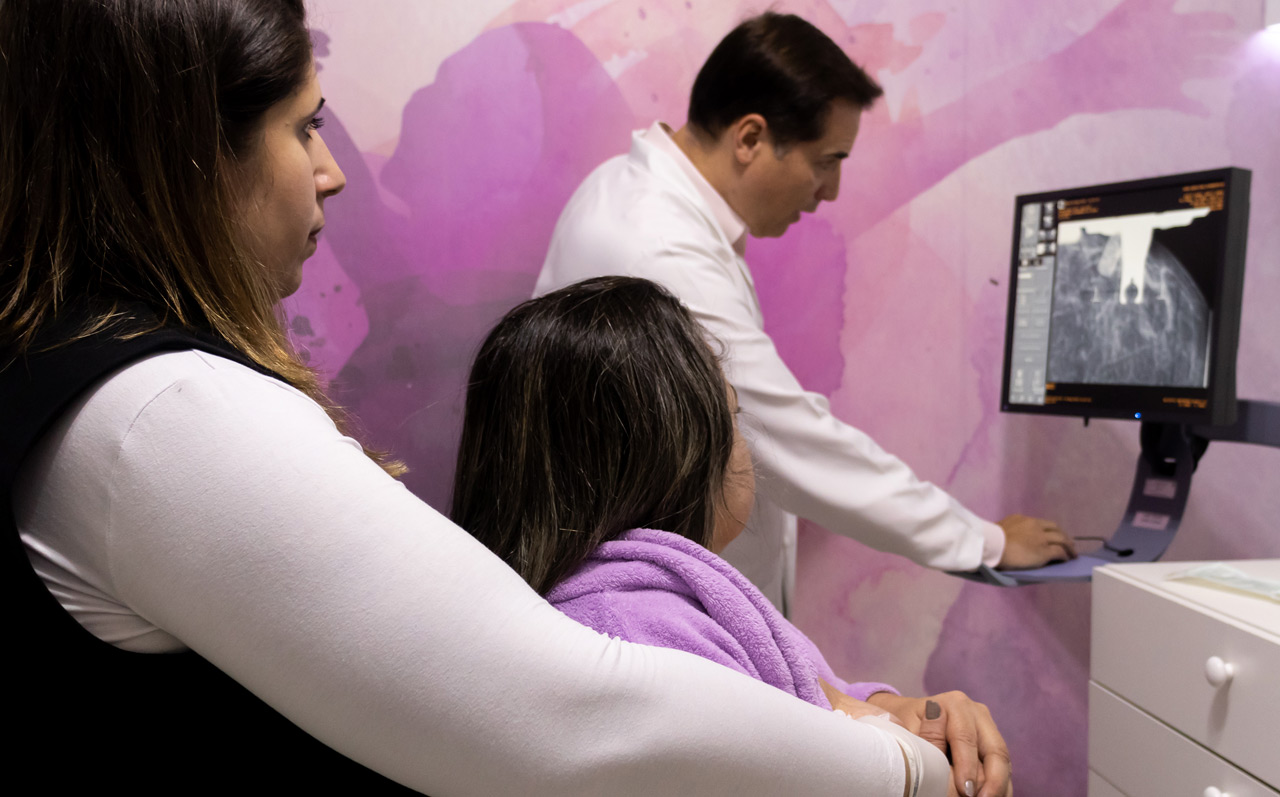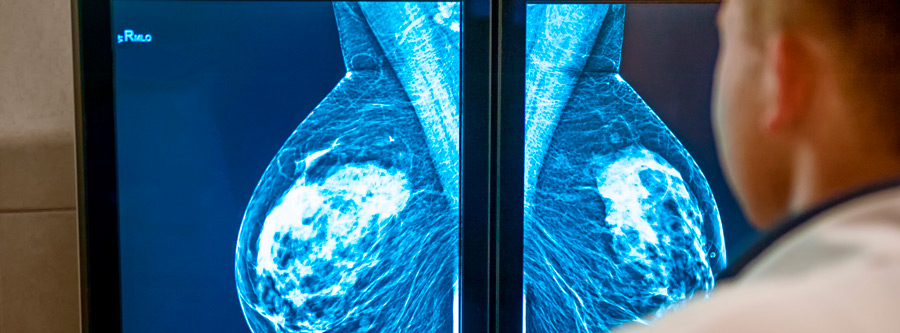In 2019, on a trip to the USA, Gabriella Antici, founder and CEO of Protea Institute, met Dr. Regina Barzilay, a computer scientist, professor at the Massachusetts Institute of Technology and head of the artificial intelligence faculty at MIT Jameel Clinic. Through Dr. Regina, Gabriella learned about an artificial intelligence technology for screening digital mammograms, developed in partnership with MGH (Massachusetts General Hospital).
The technology, based on ‘Deep Learning’, is able to estimate a woman’s probability of having breast cancer within 5 years from the screening date. At that time, the technology was being validated in many locations around the world, and Gabriella saw an opportunity to validate it with the Brazilian population as well. Dr. Regina and Dr. Constance Lehman came to Brazil in October 2019 for the Protea Institute event and visited many public and private hospitals. On this trip, Protea introduced the MIT/MGH team to Hospital do Amor, in Barretos.

The Hospital do Amor in Barretos, a reference in cancer treatment in Brazil, had a sufficient sample of digital mammograms of the Brazilian female population. The model had already been tested in the American, European and Asian population, and it was then necessary to verify the screening ability for exams of Brazilian women. The Brazilian population is especially rich for this type of study due to its high level of miscegenation. The validation was successfully completed, achieving an accuracy rate of around 80%. For reference, the technology commonly used today has an accuracy rate of around 60%.
As well as putting the two institutions in contact, Protea Institute obtained funding to ensure implementation of the research: the Patrick Mc Govern Foundation, an American foundation supporting research in Artificial Intelligence, provided the Institute with funding for the study. Using this funding, Protea Institute will support implementation of the research second phase at Santa Marcelina Hospital, a Protea partner, also in collaboration with MIT. The second phase will study mode of clinical implementation, the impacts and benefits of AI tools in the hospital’s daily routine.
As it is a philanthropic hospital caring for SUS patients, the research will enable Santa Marcelina to develop different protocols for patient screening, assess the opportunities and obstacles for implementing a screening program with active search and distinct return intervals, compare costs of a screening program with differentiated periods vs. the screening program currently practiced at the SUS, and finally, develop procedures for safe and effective deployment of Artificial Intelligence tools in specific clinical contexts.
This research was submitted to and approved by the Hospital’s Research Ethics Committee as per regulations for medical research in Brazil.
The first step to implement the research at Santa Marcelina Hospital was to obtain the donation of a digital mammography device, which Protea obtained through GE Healthcare in 2021. A Protea team member, dedicated 100% to this project, currently works with technology professionals from the Hospital and MIT and health care providers from Santa Marcelina Hospital on knowledge transfer and program implementation.
Small improvements in breast cancer screening programs can benefit a significant number of women. Early diagnosis saves lives, and this is our main goal: all for curing breast cancer.
To learn more about the Artificial Intelligence project, please email contato@institutoprotea.org.br


